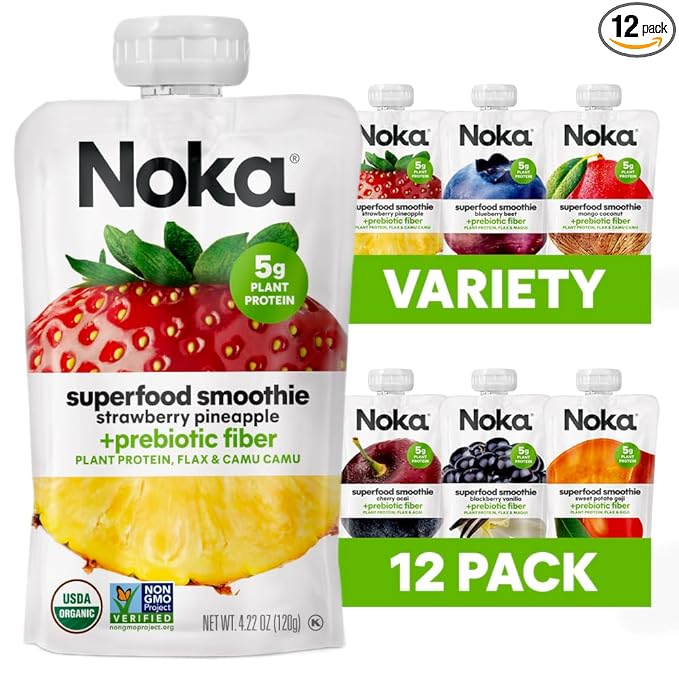Introduction
Importance of understanding food compatibility in the keto diet The importance of understanding food compatibility in the keto diet refers to the fact that certain foods and macronutrient ratios may have a greater or lesser impact on an individual's ability to enter and maintain a state of ketosis. This is crucial for the success of the ketogenic diet as entering and staying in ketosis is essential for the diet to have its desired effects on weight loss and other health benefits. It also important to understand how to balance macronutrient intake, particularly when it comes to fat, protein, and carbohydrate, to ensure that the body is getting enough of each nutrient, in the right proportion, to function properly. In addition to this, understanding food compatibility on the ketogenic diet also helps in avoiding nutrient deficiencies, and not just focusing on the macronutrient ratios but also on micronutrients and other food groups.

What is Keto Diet
The ketogenic diet, also known as the "keto diet," is a low-carb, high-fat diet that aims to change the body's metabolic state to produce ketones in the liver, which are then used as energy instead of glucose. The diet typically includes high amounts of healthy fats, moderate amounts of protein, and very low amounts of carbohydrates. This macronutrient ratio causes a metabolic shift in the body, leading to a state of ketosis where the body burns fat for fuel instead of carbohydrates.
The main goal of the ketogenic diet is to promote weight loss, but it is also used for other health purposes such as managing certain neurological disorders, improving blood sugar control and managing certain cancers. The specific macronutrient ratio for each individual may vary but typically the diet consists of 75% fat, 20% protein, and only 5% carbohydrates.
The ketogenic diet works by drastically reducing the intake of carbohydrates, which are the body's primary source of energy. When carbohydrate intake is low, the body goes into a state of ketosis, where it begins to burn stored fat for energy instead of glucose. This metabolic state is achieved by increasing the levels of ketones in the blood, which are produced by the liver when there is not enough glucose available.
Normally, the body uses glucose, which is derived from carbohydrates, as its primary source of energy. However, when there is not enough glucose available, the body turns to stored fat for energy, which results in weight loss. The liver converts the stored fat into molecules called ketones, which are then used as an alternative energy source for the body's cells, including the brain.
The diet also includes an adequate intake of healthy fats and a moderate intake of proteins to make sure the body gets enough energy and nutrition to function properly. Eating enough healthy fats and proteins also helps to reduce cravings and hunger, which can make sticking to the diet easier.
It's important to note that the diet should be done under the supervision of a healthcare professional, as the diet may have some side effects, such as the "keto flu" and nutrient deficiencies, and not suitable for certain individuals such as pregnant women, people with kidney disease or people with history of eating disorders.

Benefits of Keto Diet
The ketogenic diet is primarily used for weight loss, but it also has several other potential health benefits.
Weight loss: By forcing the body to burn fat for fuel instead of glucose, the ketogenic diet can lead to significant weight loss.
Improved blood sugar control: The keto diet may help improve blood sugar levels in people with type 2 diabetes.
Increased energy levels: Because the body is burning fat for fuel, people on the keto diet may experience increased energy levels.
Improved mental clarity and focus: The ketones produced during ketosis can also improve brain function and mental clarity.
Improved heart health: The keto diet may lead to improvements in heart health markers such as cholesterol levels and blood pressure.
Neurological disorders: The ketogenic diet has been studied for its potential benefits in managing neurological disorders such as epilepsy, Alzheimer's disease and Parkinson's disease.
Cancer: Some studies suggests that the ketogenic diet may help improve outcomes in certain types of cancer, although more research is needed in this area.
It's important to note that these benefits are not proven for every individual, and that some people may not experience any of these benefits or may experience negative side effects. It's important to consult with a healthcare professional before starting this diet.

Milk and the Keto Diet
The nutritional content of milk
- Carbohydrates: Milk contains lactose, which is a natural sugar found in milk. The amount of lactose in milk varies depending on the type of milk, but on average, one cup of milk contains 12 grams of carbohydrates.
- Fat: Milk contains fat, which varies depending on the type of milk. Whole milk contains around 3.5% fat, while skim milk contains less than 0.5% fat.
- Protein: Milk is a good source of protein, with one cup containing 8 grams of protein.
Impact of milk consumption on ketone levels: Milk contains carbohydrates, which can raise blood sugar levels and decrease ketone levels. Therefore, consuming milk in large amounts on a ketogenic diet may not be recommended.
Alternative to cow's milk: If you are following a ketogenic diet, you may choose to consume alternatives to cow's milk, such as almond milk, coconut milk or cashew milk. These alternatives are lower in carbohydrates and higher in healthy fats, making them more compatible with the ketogenic diet.
How to incorporate milk into a ketogenic diet: To incorporate milk into a ketogenic diet, it's recommended to consume it in small amounts and choose full-fat versions of milk to increase the fat content and decrease the carbohydrate content. It's also recommended to choose alternative milks that are lower in carbohydrates and higher in healthy fats. Additionally, consider consuming milk and milk products that are high in fat such as butter, ghee, and cream cheese. These options are typically lower in carbohydrates, making them better suited for a ketogenic diet.

Common concerns and misconceptions
Fear of consuming too much saturated fat: One common concern with the ketogenic diet is that it may lead to an excessive intake of saturated fats. However, it's important to note that saturated fats have been associated with health benefits when consumed in moderation, such as improving heart health markers. Additionally, consuming a diet high in healthy fats, including saturated fats, can lead to satiety, which can help with weight loss.
Fear of consuming too many calories: Some people may worry that the high-fat content of the ketogenic diet may lead to consuming too many calories, which can lead to weight gain. However, when following a ketogenic diet, it's important to focus on nutrient-dense, whole foods, and to be mindful of portion sizes. Additionally, the high-fat content of the diet may lead to greater satiety, which can help with weight loss.
Fear of consuming too much protein: Some individuals may be concerned that consuming too much protein on a ketogenic diet may kick them out of ketosis. However, it's important to note that a moderate protein intake is recommended on a ketogenic diet, as it's needed for maintaining muscle mass, and adequate intake of protein can help with weight loss. Additionally, when consuming protein, it's important to balance it with healthy fats and keep the overall macronutrient ratio in mind.

Conclusion
Summary of key points: The ketogenic diet is a low-carb, high-fat diet that aims to promote weight loss and has potential health benefits. Milk contains carbohydrates, which can raise blood sugar levels and decrease ketone levels, therefore consuming milk in large amounts on a ketogenic diet may not be recommended. Alternative milks such as almond milk, coconut milk, or cashew milk can be used as they are lower in carbohydrates and higher in healthy fats. To incorporate milk into a ketogenic diet, it's recommended to consume it in small amounts and choose full-fat versions of milk or alternatives to cow's milk.
Recommendations for incorporating milk into a ketogenic diet: To incorporate milk into a ketogenic diet, choose full-fat versions of milk or alternatives that are lower in carbohydrates and higher in healthy fats. Consume it in small amounts and balance it with healthy fats and moderate intake of proteins.
Final thoughts on the compatibility of milk and the keto diet: Milk can be compatible with a ketogenic diet, but it should be consumed in small amounts and balanced with healthy fats and moderate intake of proteins. Alternative milks such as almond milk, coconut milk, or cashew milk can be used as they are lower in carbohydrates and higher in healthy fats.
Additional resources for further information: For more information on the ketogenic diet, it is important to consult with a healthcare professional or registered dietitian. There are also many online resources available such as books, blogs and websites that provide more detailed information on the ketogenic diet and its compatibility with different foods including milk.







